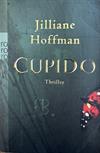
The Virgin Suicides
3 journalers for this copy...
Excellent book. I couldn't put it down. An easy and compelling read.
released to member JesseBC
Released on Wednesday, November 12, 2003 at by mail in Chicago, Illinois USA.
Received today! Thanks!
Virgin suicide
What was that she cried?
No use in stayin’
On this holocaust ride
She gave me her cherry
She’s my virgin suicide
From a song by the fictional rock bang Cruel Crux, comes the title of Jeffrey Eugenides’ 1993 bestseller The Virgin Suicides, published by Warner Books and adapted for film by Columbia Pictures in 1999. It’s the story of five adolescent sisters, living and dying by their own hands, in a suburb of Detroit in the 1970's.
Their brief and tragic lives are narrated by the men whose lives were forever altered by knowing them and witnessing their demise. Years later, these middle-aged men gather in their boyhood treehouse and struggle to understand who the Lisbon girls really were and why they all killed themselves within the space of a year. They approach their memories in the form of a court presentation, complete with witnesses and exhibits, as they revisit their youthful obsession.
Eugenides revealed in later interviews that the idea for the novel came to him when his nephew’s babysitter disclosed that all the girls in her family had attempted suicide. Yet, while the book touches on practically every pop psychology explanation for teenage suicide (from grief and depression to suicide pacts and lax morals), it avoids embracing any of them. Indeed, the author seems to be driving at the futility of such common explanations as mental health problems or adolescent angst. To the boys (now men), their deaths remain just one more of the incomprehensible things that has always enthralled them about the girls. The reader is left equally at a loss, with the narrative style underscoring how little males understand females no matter how fascinating they find them. “We knew that the girls were our twins,” the narrator opines, “that we all existed in space like animals with identical skins, and that they knew everything about us though we couldn’t fathom them at all. We knew, finally, that the girls were really women in disguise, that they understood love, and even death, and that our job was merely to create the noise that seemed to fascinate them.”
Eugenides writes with a concise, piercing prose and a keen insight into adolescent thought and behavior. The Lisbon girls and their would-be suitors are given to telephone conversations that consist of playing snippets of popular song lyrics to one another, reflecting with bittersweet nostalgia the adolescent affinity for music that can put into words what they’re still learning to communicate.
Because we’re told on page one that all five Lisbon girls are going to die, the novel avoids the feel of a “shocker”. Their deaths are a fait accompli and we’re only left to wonder why and how and free to examine other themes in the novel without rushing towards a gory climax.
The novel is disturbing – perhaps more so because the Lisbon girls, despite their dramatic exits from life, are so clearly not insane. It’s comforting to suppose that suicide is the domain of, if not the insane, at least the clinically depressed. As their therapist and school officials (and the reader) struggle to find evidence of mental health problems in the girls, it becomes clear that what’s insane isn’t the girls themselves, but the suburban America in which they’re steeped. In the whitebread world of suburbia, appearances matter more than content and Eugenides shows the dark side of what passes in white, middle-class America for “normal”. After Cecilia, the youngest Lisbon daughter, fails to slit her wrists, the family throws a party (at which she manages to successfully do herself in). The neighbors note the home’s decline as the yard becomes unkempt and the family ceases to attend church. At Christmas, the Lisbons still string up lights and their sanctimonious mother burns the girls’ rock records hoping to morally cleanse them while the school dismisses their father from his teaching position out of concern that a man whose own children kill themselves should not be influencing other people’s children. Only the Lisbon’s elderly, acerbic Greek neighbor can see to the heart of suburbia’s trivial values. “We Greeks are a moody people,” she notes. “Suicide makes sense to us. Putting up Christmas lights after your own daughter does it – that makes no sense. What my yia yia could never understand about America was why everyone pretended to be happy all the time.”
Yet the Lisbon girls may understand this more than they are able to express. When the city comes to cut down the trees that line their street in order to prevent the spread of Dutch elm disease , the four remaining sisters form a human chain to protect the tree. The absurdly normal neighbors (complete with manicured and bedecked poodle) look on as the news cameras roll and the girls out-wait the city officials and effectively save the tree. At first, the scene seems incongruent and unnecessary to the story. However, it demonstrates the girls’ rebellion against the appearances-over-content values of the world in which they live – a rebellion that presumably fuels their suicides.
Since the Detroit setting is underplayed throughout the novel, we’re given the feeling that such a thing could happen in any number of the pristine communities of Anywhere, USA. Similarly, the girls themselves are stereotypes, aided by a narrative style in which we never hear them speak for themselves. Cecilia and her sister, Lux embody the Madonna/whore dichotomy. Cecilia jumps to her death in a white wedding gown, clutching a picture of the Virgin Mary, while Lux is trumping their restrictive parents with smoking, drinking, and frequent sexual encounters on the roof. Yet neither escapes her fate and there’s an almost religious feel to their deaths. According to Christian doctrine, sin entered the world through a woman, yet it can’t be stamped out through a woman – only through a man born to a “pure” woman. The girls take their own lives before they have a chance to enter womanhood, to soil their purity, and take up the mantle of Eve.
© Jennifer Jackson, 2003, All Rights Reserved.
What was that she cried?
No use in stayin’
On this holocaust ride
She gave me her cherry
She’s my virgin suicide
From a song by the fictional rock bang Cruel Crux, comes the title of Jeffrey Eugenides’ 1993 bestseller The Virgin Suicides, published by Warner Books and adapted for film by Columbia Pictures in 1999. It’s the story of five adolescent sisters, living and dying by their own hands, in a suburb of Detroit in the 1970's.
Their brief and tragic lives are narrated by the men whose lives were forever altered by knowing them and witnessing their demise. Years later, these middle-aged men gather in their boyhood treehouse and struggle to understand who the Lisbon girls really were and why they all killed themselves within the space of a year. They approach their memories in the form of a court presentation, complete with witnesses and exhibits, as they revisit their youthful obsession.
Eugenides revealed in later interviews that the idea for the novel came to him when his nephew’s babysitter disclosed that all the girls in her family had attempted suicide. Yet, while the book touches on practically every pop psychology explanation for teenage suicide (from grief and depression to suicide pacts and lax morals), it avoids embracing any of them. Indeed, the author seems to be driving at the futility of such common explanations as mental health problems or adolescent angst. To the boys (now men), their deaths remain just one more of the incomprehensible things that has always enthralled them about the girls. The reader is left equally at a loss, with the narrative style underscoring how little males understand females no matter how fascinating they find them. “We knew that the girls were our twins,” the narrator opines, “that we all existed in space like animals with identical skins, and that they knew everything about us though we couldn’t fathom them at all. We knew, finally, that the girls were really women in disguise, that they understood love, and even death, and that our job was merely to create the noise that seemed to fascinate them.”
Eugenides writes with a concise, piercing prose and a keen insight into adolescent thought and behavior. The Lisbon girls and their would-be suitors are given to telephone conversations that consist of playing snippets of popular song lyrics to one another, reflecting with bittersweet nostalgia the adolescent affinity for music that can put into words what they’re still learning to communicate.
Because we’re told on page one that all five Lisbon girls are going to die, the novel avoids the feel of a “shocker”. Their deaths are a fait accompli and we’re only left to wonder why and how and free to examine other themes in the novel without rushing towards a gory climax.
The novel is disturbing – perhaps more so because the Lisbon girls, despite their dramatic exits from life, are so clearly not insane. It’s comforting to suppose that suicide is the domain of, if not the insane, at least the clinically depressed. As their therapist and school officials (and the reader) struggle to find evidence of mental health problems in the girls, it becomes clear that what’s insane isn’t the girls themselves, but the suburban America in which they’re steeped. In the whitebread world of suburbia, appearances matter more than content and Eugenides shows the dark side of what passes in white, middle-class America for “normal”. After Cecilia, the youngest Lisbon daughter, fails to slit her wrists, the family throws a party (at which she manages to successfully do herself in). The neighbors note the home’s decline as the yard becomes unkempt and the family ceases to attend church. At Christmas, the Lisbons still string up lights and their sanctimonious mother burns the girls’ rock records hoping to morally cleanse them while the school dismisses their father from his teaching position out of concern that a man whose own children kill themselves should not be influencing other people’s children. Only the Lisbon’s elderly, acerbic Greek neighbor can see to the heart of suburbia’s trivial values. “We Greeks are a moody people,” she notes. “Suicide makes sense to us. Putting up Christmas lights after your own daughter does it – that makes no sense. What my yia yia could never understand about America was why everyone pretended to be happy all the time.”
Yet the Lisbon girls may understand this more than they are able to express. When the city comes to cut down the trees that line their street in order to prevent the spread of Dutch elm disease , the four remaining sisters form a human chain to protect the tree. The absurdly normal neighbors (complete with manicured and bedecked poodle) look on as the news cameras roll and the girls out-wait the city officials and effectively save the tree. At first, the scene seems incongruent and unnecessary to the story. However, it demonstrates the girls’ rebellion against the appearances-over-content values of the world in which they live – a rebellion that presumably fuels their suicides.
Since the Detroit setting is underplayed throughout the novel, we’re given the feeling that such a thing could happen in any number of the pristine communities of Anywhere, USA. Similarly, the girls themselves are stereotypes, aided by a narrative style in which we never hear them speak for themselves. Cecilia and her sister, Lux embody the Madonna/whore dichotomy. Cecilia jumps to her death in a white wedding gown, clutching a picture of the Virgin Mary, while Lux is trumping their restrictive parents with smoking, drinking, and frequent sexual encounters on the roof. Yet neither escapes her fate and there’s an almost religious feel to their deaths. According to Christian doctrine, sin entered the world through a woman, yet it can’t be stamped out through a woman – only through a man born to a “pure” woman. The girls take their own lives before they have a chance to enter womanhood, to soil their purity, and take up the mantle of Eve.
© Jennifer Jackson, 2003, All Rights Reserved.
Journal Entry 7 by JesseBC at Fellow Bookcrosser in Manchester, New Hampshire -- Controlled Releases on Tuesday, April 27, 2004
Released on Tuesday, April 27, 2004 at Fellow Bookcrosser in Manchester, New Hampshire Controlled Releases.
Received this after claiming it off the BookRelay site. Thanks!!
I don't know what it was, but this book simply could not hold my interest. I picked it up and put it down at least a half dozen times, and I actually almost got to the end...then just didn't care enough to finish. Odd, since I was really looking forward to reading it. Anyway, I plan to release it and hopefully keep it moving!
Journal Entry 10 by Guinneth at Mall Of New Hampshire, the in Manchester, New Hampshire USA on Monday, October 17, 2005
Released 18 yrs ago (10/17/2005 UTC) at Mall Of New Hampshire, the in Manchester, New Hampshire USA
WILD RELEASE NOTES:
RELEASE NOTES:
In a booth at Ruby Tuesday's.
Congratulations on catching this book - I hope you enjoy it. When you finish reading it, please journal again and share what you thought about it. Then, please pass the book along for somebody else to read. You could give it to a friend or leave it wherever you think it might find a reader who'll love it! (A park bench, phone booth, restaurant...) It would be great if you'd join Bookcrossing. It’s free and you could track where your books go. If you do want to join, I'd love it if you would use GUINNETH- - that's me-- as the name of the person who referred you. Happy reading!
In a booth at Ruby Tuesday's.
Congratulations on catching this book - I hope you enjoy it. When you finish reading it, please journal again and share what you thought about it. Then, please pass the book along for somebody else to read. You could give it to a friend or leave it wherever you think it might find a reader who'll love it! (A park bench, phone booth, restaurant...) It would be great if you'd join Bookcrossing. It’s free and you could track where your books go. If you do want to join, I'd love it if you would use GUINNETH- - that's me-- as the name of the person who referred you. Happy reading!
 This Book is Currently in the Wild!
This Book is Currently in the Wild!











